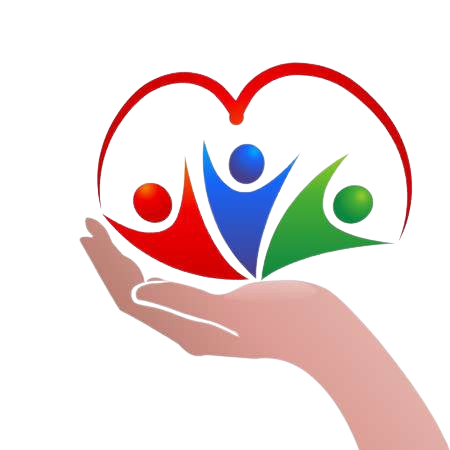A Quick Overview of the Best Apps for Eating Disorder Support
-
Best all-around: Recovery Record: Eating Disorder Management
-
Best for interaction and journaling: Rise Up + Recover
-
Best for CBT-based tools: MindShift CBT
-
Most feature-rich app: What’s Up? – A Mental Health App
-
Best for personal growth: Cognitive Diary CBT Self-Help

Navigating a healthier relationship with food can be a challenging journey, especially for individuals living with or recovering from disordered eating. It’s rarely something that can be resolved through casual advice or browsing online forums.
However, when used appropriately alongside professional medical treatment, digital tools can offer meaningful support. Several mobile apps are designed to help you monitor eating behaviors, manage emotions, and develop healthier coping strategies on the path to recovery.
Understanding Disordered Eating
It’s important to recognize the distinction between full-fledged eating disorders and disordered eating. While disordered eating doesn’t always meet diagnostic criteria for conditions like anorexia nervosa or bulimia, it still includes harmful behaviors that can escalate into more serious issues over time.
Common signs of disordered eating include:
-
Eating for emotional comfort rather than physical hunger (e.g., due to stress or boredom)
-
Eating repetitive or limited meals every day
-
Avoiding entire food groups
-
Engaging in unhealthy habits like binge eating, purging, or misusing diet aids
On the other hand, eating disorders often involve more specific behavioral patterns:
-
Anorexia nervosa: Severe food restriction and significant weight loss
-
Bulimia nervosa: Cycles of binge eating followed by purging behaviors
-
Binge eating disorder: Eating large amounts of food with a sense of loss of control, but without purging
Can Apps Really Help with Eating Disorder Recovery?
While nothing can replace professional medical care, mobile apps can play a supportive role when used under the supervision of trained providers. Research — including a 2015 study — has shown that certain apps, such as Recovery Record, can be effective when used as part of a broader treatment plan. These tools offer features like meal tracking, emotion monitoring, coping skill training, and even communication with your care team.
How We Chose These Apps
With countless apps available for mental health and behavior tracking, choosing the right one can be daunting. The apps listed below were selected based on:
-
Positive user ratings and reviews
-
Clinical relevance and utility
-
Free or low-cost access
Healthline’s Picks: Best Eating Disorder Recovery Apps
1. Recovery Record: Eating Disorder Management
⭐ iOS: 4.9 | ⭐ Android: 4.8 | 💲 Free
This app serves as a personal support companion for individuals managing various eating disorders. It allows you to:
-
Track meals, thoughts, and moods
-
Customize meal plans and recovery strategies
-
Set goals and log progress
-
Communicate with clinicians for real-time support
2. Rise Up + Recover
⭐ iOS: 4.7 | ⭐ Android: 4.5 | 💲 Free
Ideal for individuals dealing with body image issues, compulsive dieting, or disordered eating, this app includes:
-
Daily logs for emotions, meals, and behaviors
-
CBT-inspired prompts and self-monitoring tools
-
The ability to export reports for sharing with healthcare providers
-
Custom reminders to stay motivated
3. MindShift CBT
⭐ iOS: 4.3 | ⭐ Android: 4.0 | 💲 Free
Although originally developed as a tool for anxiety management, MindShift also offers:
-
Mindfulness exercises
-
CBT techniques to reshape negative thinking
-
Strategies for tackling perfectionism and social anxiety—issues often tied to eating disorders
4. What’s Up? – A Mental Health App
⭐ iOS: 4.4 | ⭐ Android: 3.9 | 💲 Free with optional upgrades
This app offers a broad range of mental health support tools:
-
CBT-based techniques to manage stress and emotions
-
A thought diary to identify patterns and triggers
-
Breathing exercises and calming practices
-
Mood tracking to help spot emotional trends over time
5. Cognitive Diary CBT Self-Help
⭐ Android: 4.3 | 💲 Free with in-app options
Developed by a clinical psychologist, this app is centered around personal insight and self-awareness. It helps users:
-
Recognize cognitive distortions
-
Identify thoughts that hinder emotional well-being
-
Learn to replace negative patterns with constructive thinking
-
Focus on long-term self-improvement
Frequently Asked Questions
Can these apps replace therapy?
No. These apps should not be used as a substitute for professional mental health care. Instead, they are meant to complement therapy, counseling, or medical treatment. Always discuss any digital tools with your treatment provider.
What features should I look for in a recovery app?
Choose apps that have been created or endorsed by licensed healthcare providers. Look for:
-
Positive user reviews
-
Features like food/mood tracking, CBT tools, or therapist portals
-
Transparency about privacy and data security
What if an app worsens my experience or doesn’t feel helpful?
If you find the content triggering or unhelpful, discontinue use and inform your therapist or treatment team. They can help determine a more suitable option based on your needs.
Final Thoughts
When paired with consistent therapy or participation in support groups, eating disorder apps can be valuable tools for tracking your mental and physical progress. They provide a structured way to document your thoughts, understand behavioral triggers, and engage with your recovery process.
Still, it’s essential to use them as part of a broader recovery plan—not as a replacement for professional care. Recovery is personal, and having supportive tools can make the process more manageable and empowering.


These apps sound like great tools for anyone working on recovery. It’s encouraging to see technology supporting healthier habits.
I appreciate the list—finding the right app can make a big difference in recovery and maintaining healthy eating.